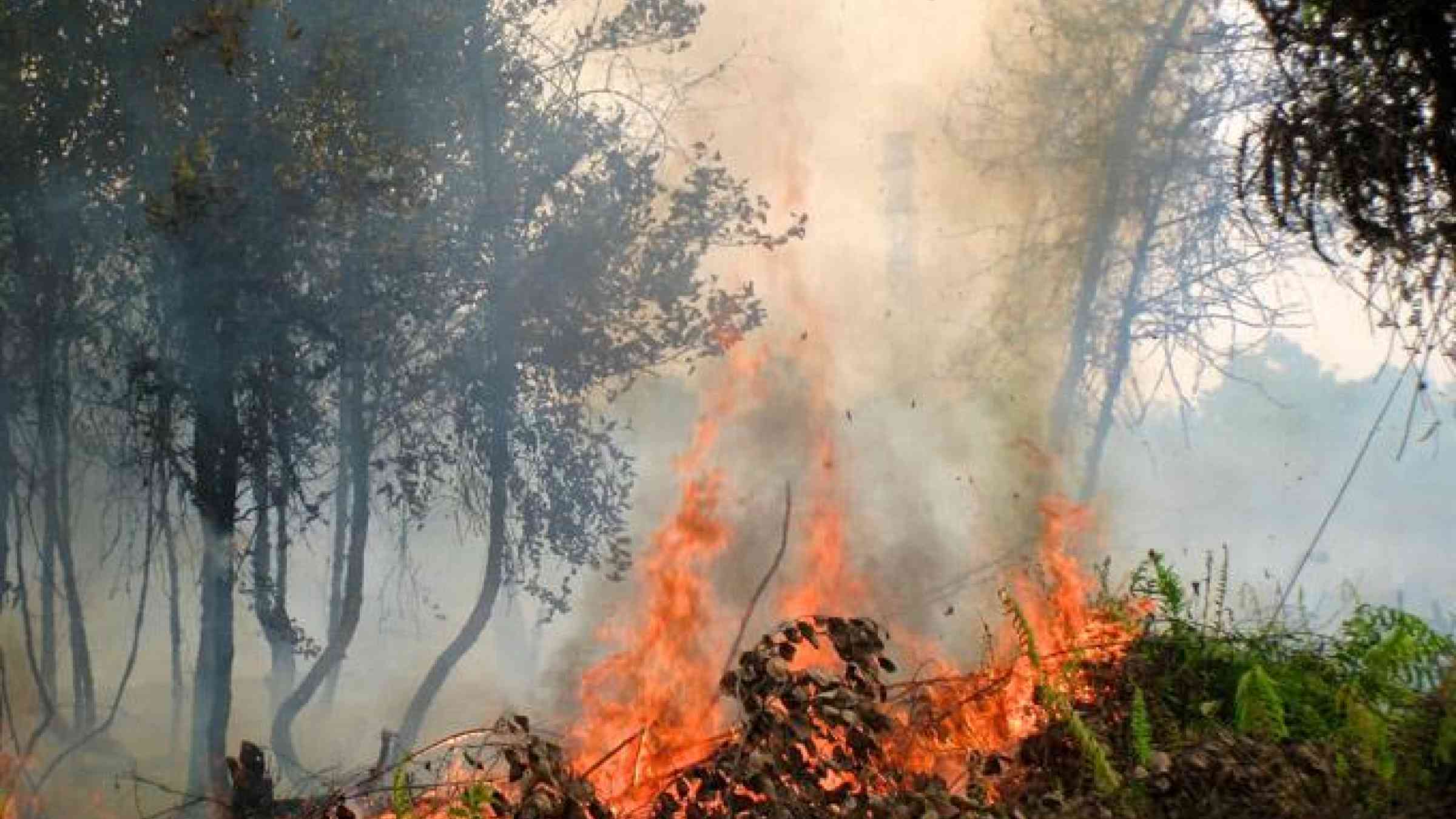Indonesia targets catastrophic wildfires, climate change with historic move to protect peatlands

Indonesia's President Joko Widodo announced today a landmark moratorium, which bans all activities that damage the hydrological functions of peatlands - the world's largest terrestrial soil carbon stock.
The move is expected to slash greenhouse gas emissions and prevent disastrous peat fires that have plagued the south-east Asian nation in recent years.
Recent studies suggest that the 2015 Indonesian peat fires affected 43 million people, caused over 500,000 people to be treated for respiratory disease, and led to US$ 16.1 billion in overall economic damage (twice the value of the Aceh Tsunami Reconstruction).
UN Environment head Erik Solheim welcomed Indonesia's decision with the following statement.
"This is an extremely positive and historic decision, both for Indonesia and for global efforts to tackle climate change. Such a moratorium has the potential to deliver huge health benefits for the Indonesian people, protect the country's incredible environment and deliver one of the biggest commitments yet to the implementation of the Paris Agreement.
"This is an example of the kind of leadership that the world needs right now."
Greenhouse gas emissions from drained and burning peatlands account for up to 5 per cent of anthropogenic carbon emissions. These emissions are rising due to increasing peat degradation and loss from agriculture and fires, and driving the world closer to a dangerous tipping point.
Peat carbon stocks are equivalent to at least 60 percent of all atmospheric carbon. It means that their further degradation could send climate change spiralling out of control.
Despite their importance, peatlands are coming under increased threat, mainly from conversion for palm oil and pulpwood production. Drainage of peatlands can result in environmental problems, most visible being the enormous fires in Indonesia and Russia in recent years.
In Indonesia, the worst days of the peat forest fires resulted in emissions greater than the daily emissions from the entire United States economy. In the Nordic and Baltic states, drained peatlands are responsible for 25 percent of all emissions.
At the recent climate conference in Marrakech, Morocco, Indonesia joined Peru and the Republic of Congo as partner countries for the new Global Peatlands Initiative, which will mobilize governments, international organizations and academia in a targeted effort to protect peatlands.